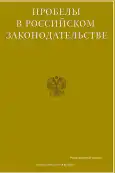Information Technology: a New Round of Terrorism and New Ways of Countering
- Authors: Khamurzov A.T.1
-
Affiliations:
- Krasnodar University of the Ministry of Internal Affairs of Russia
- Issue: Vol 16, No 5 (2023)
- Pages: 176-180
- Section: General theoretical, criminal-legal and other problems of Countering extremism and terrorism. Problems of preventing extremism and terrorism
- URL: https://journal-vniispk.ru/2072-3164/article/view/250163
- EDN: https://elibrary.ru/LCCFMN
- ID: 250163
Cite item
Abstract
The purpose of this study is to study new ways of the emergence of terrorism and ways to counter it.
Terrorism is an attempt on the life and health of citizens, public safety, infrastructure and public authorities, the natural, information environment, important officials.
Modern terrorists are increasingly taking advantage of the Internet. Most often, recruitment is carried out through social networks, where there is an opportunity not only to transmit a huge flow of information, but also feedback from any interested user. In this case, it is quite difficult for law enforcement agencies to track the information, especially to do it quickly and on time. As a result, it is not always possible to stop illegal actions in time. According to the Ministry of Internal Affairs and information in the media, measures to counter terrorism are carried out regularly. In addition, the legislator is constantly refining the legal framework. For example, an extrajudicial procedure has recently been adopted to restrict access to Internet resources containing calls for mass riots, extremist activities, as well as incitement to ethnic or religious strife, participation in terrorist activities, public mass events held in violation of the established order. Despite the counteraction measures taken by the law enforcement agencies of the Russian Federation, the number of terrorist crimes is constantly growing. This is due not only to the aggravated socio-economic situation and the country's foreign policy, but also to the insufficient experience of law enforcement officers, the lack of a sufficient number of special technical means.
It is concluded that the Internet helps terrorists to influence the population psychologically, for this purpose specialists are involved in the case. It is worth noting that terrorist groups often include people with certain professional skills and a good education, and a comprehensive approach is required to effectively counter terrorist activity through a worldwide network. In addition, it requires the mobilization of considerable forces of state bodies and individual citizens.
Full Text
##article.viewOnOriginalSite##About the authors
Azamat T. Khamurzov
Krasnodar University of the Ministry of Internal Affairs of Russia
Author for correspondence.
Email: hamurzovazamat@gmail.com
Police Major, Lecturer of the Department of Fire Training, North Caucasus Institute for Advanced Studies (branch)
Russian Federation, Nalchik, KBRReferences
- Abdulatipov A.M. On improving measures to counter the use of new technologies by terrorists // Legal Bulletin of Dagestan State University. 2020. Vol. 36. No. 4. pp. 123-129.
- Bezhanov A.I. Criteria of public danger of terrorist crimes // In the collection: Criminal law, criminal procedure and criminalistic aspects of countering modern crime. Collection of scientific papers of the Regional Round Table. Edited by A.D. Avetisyan, V.V. Koliev, I.G. Salomonenko, A.M. Solovyov, A.A. Ryasov. Stavropol, 2021. pp. 28-30.
- Gedugoshev R.R., Korsakov Yu.V., Abazova M.V. The main directions of countering terrorism and extremism in modern conditions // Journal of Applied Research. 2021. No. 5-2. pp. 185-189.
- Kashirgov A.H. The phenomenon of aiding terrorism in modern Russia // Gaps in Russian legislation. 2021. Vol. 14. No. 5. pp. 54-57.
- Kuznetsov A.V. The problem of distinguishing the concepts of terrorism and extremism in the current legislation // Synergy of Sciences. 2022. No. 71. pp. 379-388.
- Kuchmezov R.A. Prerequisites and trends of modern terrorism in the context of globalization // Gaps in Russian legislation. 2022. Vol. 15. No. 4. pp. 164-168.
- Magomedov M.N. Possibilities of using infocommunication technologies in the field of countering terrorism // Gaps in Russian legislation. 2022. Vol. 15. No. 4. pp. 141-144.
- Manukyan A.R. Problems of countering terrorism and extremism on the Internet in conditions of widespread digitalization // Gaps in Russian legislation. 2021. Vol. 14. No. 3. pp. 37-41.
- Mukhtarov D.D., Galimov S.A. Problematic aspects of legal regulation of countering terrorism // Gaps in Russian legislation. 2021. Vol. 14. No. 4. pp. 37-40.
- Logunov A.B., Olshevsky D.V., Karpenko V.I. Modern terrorism: system and counteraction // Innovatika i expertize: scientific works. 2021. No. 2 (32). pp. 179-190.
- Cherkesov A.Y. Globalizing factors favoring the spread of information extremism and terrorism: problems and ways of countering // Education and Law. 2021. No. 6. pp. 367-371.
- Shogenov Z.A. Counteraction to terrorism in modern Russia // Eurasian Legal Journal. 2021. No. 10 (161). pp. 421-422.
Supplementary files








